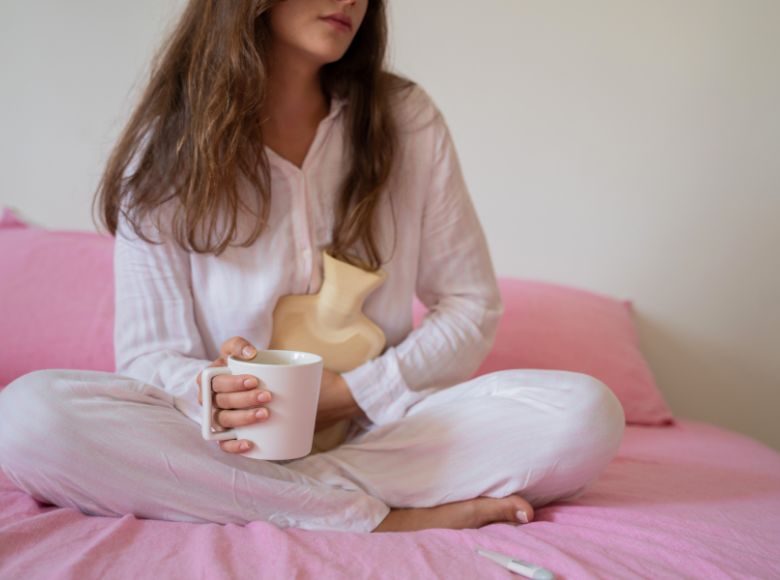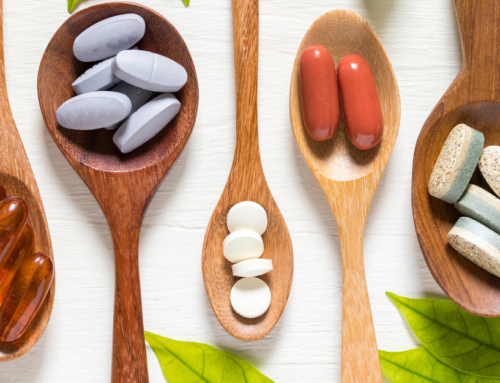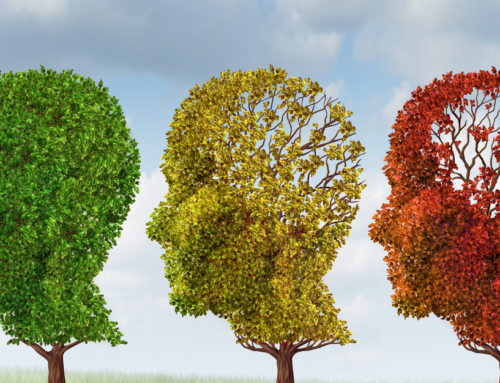For some women, their monthly period is no big deal.
For others, it’s a grueling journey through depression, anxiety, irritability, pain, and more.
If you think premenstrual syndrome (PMS) is too awful to be natural, you’re right — PMS is a symptom of a hormone imbalance often caused by too much stress. This imbalance can signal imbalances in your thyroid function.
Although a variety of factors can cause hormonal imbalances and PMS, one of the more common is low progesterone caused by long-term chronic stress. Chronic stress plays a major role in triggering thyroid and hormonal flare-ups. Managing the various factors that cause stress is vital to both PMS and thyroid health.
Low progesterone symptoms include:
- Depression
- Mood swings
- Changes in weight or appetite
- Insomnia
- Anxiety
- Crying easily
- Irritability
- Poor focus and concentration
- Fatigue
- Frequent or irregular menstruation
- Low sex drive
- Migraines
How stress lowers progesterone when you have thyroid disease
Chronic stress causes pregnenolone steal, a situation that causes progesterone deficiency and hormonal imbalances. Pregnenolone is a precursor hormone used to make progesterone and the stress hormone cortisol.
The body can only make so much pregnenolone. This means that if stress is always high, it “steals” pregnenolone from progesterone to make cortisol in order to meet the demands of stress. This causes an imbalance between progesterone and estrogen.
This balance, in turn, causes spikes in inflammation that worsen symptoms of thyroid disease or Hashimoto’s hypothyroidism, making it difficult to manage.
Factors that cause pregnenolone steal
Progesterone cream use can further skew hormones. It’s better to address the causes of low progesterone, which is typically stress-induced pregnenolone steal. These are among the similar strategies one uses to manage Hashimoto’s hypothyroidism. Causes of pregnenolone steal and PMS include:
- Sugar and sweeteners, excess processed carbs — rice, pasta, bread, pastries, etc.
- Excess caffeine
- Food intolerances — gluten, dairy, eggs, soy, corn, nuts, grains, etc.
- Digestive issues — bloating, indigestion, diarrhea, constipation, leaky gut, pain, etc.
- Lack of sleep
- Inflammation — joint pain, chronic pain, skin rashes, brain fog, fatigue, etc.
- Autoimmune disease (such as Hashimoto’s)
- Overdoing it; over-exercising
- Feeling constantly overwhelmed
- Poor nutrition
- Reverse pregnenolone steal to soothe PMS
Ways to reduce pregnenolone steal and help to balance hormones
- A variety of compounds can help soothe PMS, such as omega-3 fatty acids and gamma-linoleic acid (GLA) —evening primrose oil, borage oil, or black currant oil. Visit one of our nutrition stores to learn more about these supplements and order.
- Supporting serotonin, a brain chemical that promotes well-being, may help with PMS mood symptoms. Helpful supplements include tryptophan, 5-HTP, St. John’s Wort, and SAMe.
Contact our team for more advice on using natural therapies to alleviate PMS, support healthy hormones, and manage Hashimoto’s hypothyroidism and hormone imbalances.







